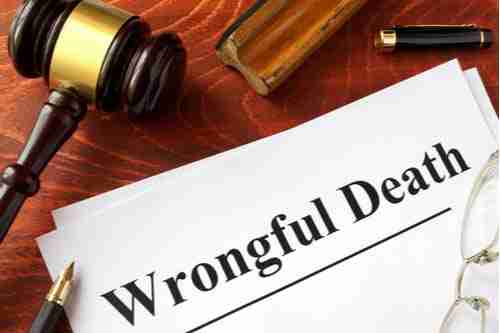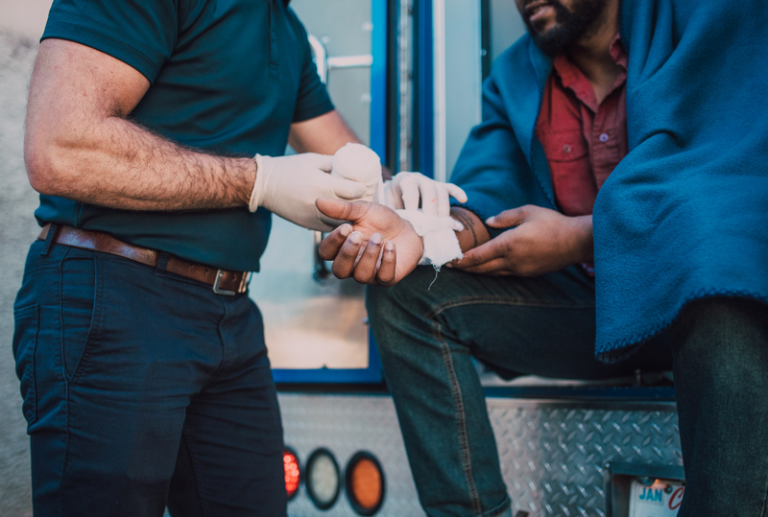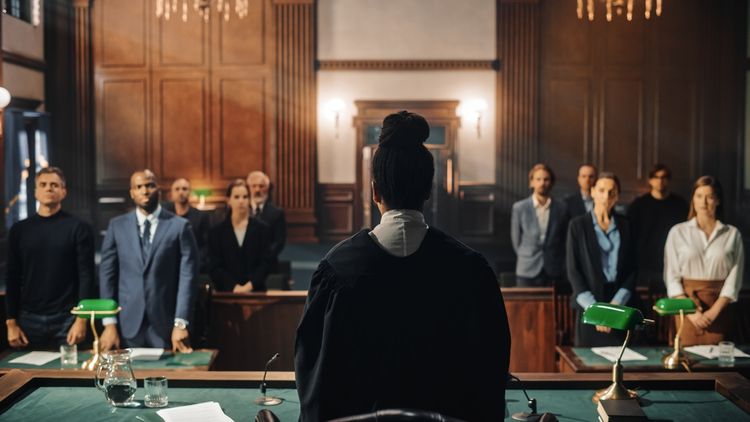Losing a loved one is not easy and can be devastating to those left behind. It is demoralizing knowing that your loss occurred due to another person’s carelessness or negligence. Losing a loved one in such a manner comes unexpectedly and often has financial, emotional, and psychological impacts. Although there is no way to get a loved one back after death, there is a legal way you can get financial compensation.
Dealing with a wrongful death case while also grieving can be challenging. That is why it is wise to talk to a compassionate and experienced Decatur wrongful death lawyer. At SHElaw firm®, our personal injury attorneys have extensive experience with wrongful death cases in Georgia.
This is why we offer free consultation sessions where we sit down and talk more about your case. This gives you an opportunity to ask questions, understand your legal options, and decide the best way to handle the case. To know more about our services and book a free consultation, call our office at 470-788-8930.
How Is Wrongful Death Defined in the State of Georgia?
The Wrongful Death Act has been around for many years with many amendments and additions until now. The Ga. Code § 51-4-1 to 5 of the Wrongful Death Act outlines the possible legal grounds for a wrongful death claim, with the first section defining what wrongful death is.
Georgia’s Wrongful Death Act (Ga. Code 51-4-1) defines wrongful death as all cases that have resulted in the death of a human being due to criminal activities, negligence, defective property, or manufacturing.
What does this mean? It means that there are several possible legal grounds for wrongful death litigation in Decatur, Ga. They include:
- Criminal acts – including intentional homicide
- Defective products – Deaths caused by faulty or dangerous consumer products such as drugs, appliances, electronics, medical devices, and even vehicle parts.
- Negligent traffic accidents – driving while intoxicated, pedestrian accidents, and more
- Medical malpractice – medication errors, surgical errors, medical injury, misdiagnosis, and more
- Sanitation issues and food contamination
- Engineering errors and shoddy construction
- Improper or illegal alcohol service – a bartender serves alcohol to a visibly intoxicated person.
- Neglect and abuse in nursing homes
Who Is Qualified to File a Wrongful Death Claim in Georgia?
Although wrongful death cases fall under personal injury, they are not the same as the others. That is because, in others, like car accidents, slip and fall cases, and dog bites, the recipient of the compensation is the victim. Whereas, in wrongful death cases, the recipients of the compensation are not the victim but those close to the deceased.
The state of Georgia has strict laws regarding who is eligible to file a wrongful death lawsuit and receive compensation. According to Georgia’s Acts Ga. Code 19-7-1, 51-4-2, 51-4-4, and 51-4-5, the following persons are eligible to file a claim after a wrongful death:
- Spouse of the Deceased – The surviving spouse is the first person in line to file wrongful death litigation. Remember, this does not cover former spouses in the event of a divorce.
- Children of the Deceased – If there is no surviving spouse, the children of the deceased are next in line.
- Deceased’s parents – If the deceased has no spouse or children, the parents may file wrongful death litigation.
- Estate representative – If the deceased has no parents, spouse, or children, the estate representative has the legal right to file a claim. In the event that compensation is recovered in the claim, it will be held by the estate and distributed to the next of kin.
According to Georgia’s Wrongful Death Act, no other family member, such as grandparents or siblings, is qualified to file a wrongful death claim. It is only the people mentioned above. However, assuming that a sibling of the deceased wishes to file a wrongful death claim, he/she can only do it through the mentioned parties.
What Types Of Damages Can Be Recovered in a Wrongful Death Claim?
In a wrongful death case, the surviving family can be awarded compensation categorized under three groups (economic, non-economic values, and estate claim). The three types of compensation differ in the following way:
- The first (economic value) is compensation for the deceased’s full life value. What does this mean? It means that the civil court will try to place a monetary value on the deceased’s life in comparison to what the descendants would have gained.
- The second (non-economic value) is compensation based on the intangible losses based on the descendant’s life.
- The third (estate claim) is compensation for specific financial loss related to the deceased’s death and can only be filed by the estate of the departed.
These are the factors that the civil court will use to come up with a monetary value. Let’s look at each in depth.
Economic Value
This is compensation based on the financial losses suffered the moment the descendants lose the deceased. In other words, it is the financial loss suffered as a result of the passing of the departed.
Therefore, it covers losses such as earning potential, work benefits, retirement benefits, possible future income, and more. It is important to note that the younger the deceased was, the longer their possible earning period could be.
Non-Economic Value
This covers compensation based on losses that cannot be touched or calculated. Under this compensation type, the civil court will try to place a monetary value based on the role played by the deceased. It covers losses like the loss of emotional support, loss of companionship, and more.
Estate Claim
This type of compensation can only be filed by the deceased’s estate, and it is often filed separately. It is designed to cover specific financial losses related to the demise of the departed. It may cover losses like funeral and burial costs and medical expenses.
Can a Surviving Family File for Punitive Damages?
NO! The surviving family cannot file for punitive damages. In fact, the civil court will not award punitive damages in a wrongful death case to the surviving family. However, punitive damages can be awarded to the deceased’s estate if an estate claim is filed by the estate’s administrator.
How Is Negligence Proven in a Wrongful Death Case?
Most wrongful death cases are based on negligence. Without proving all the elements, your case will be lost. In Georgia, there are 4 elements that must be met to prove negligence. These are:
Duty of Care
The plaintiff (in this case, the surviving family member) must demonstrate that the defendant owed the deceased a duty of care or due care during the relevant time period. The legal term”‘Duty of Care” means a duty to abstain from causing harm to others. It means the defendant had a duty to keep the deceased safe.
For example, assuming the departed died after a car accident involving a drunk driver, the driver (defendant) owed the departed due care—meaning they had the obligation to drive carefully and while sober.
Breach of Duty of Care
The plaintiff must show how the defendant failed to obey the duty of care. In other words, they violated or breached it. You will have to show what the defendant did (or didn’t do) whereas a reasonable person in a similar position would have acted differently.
Using the example above. The driver failed to obey the duty of care when they decided to drive while under the influence. This means that if the defendant had not been under the influence, the accident would not have happened.
Causation
In this element, the plaintiff must link the death to the defendant’s careless action. In other words, the plaintiff must show the death resulted from the defendant’s actions and not something else.
Using the example above, the plaintiff must show that the defendant’s actions caused the accident and that the deceased was not to blame. The plaintiff must also show that the accident was the cause of death. For example, it can be a result of damaged internal organs, internal bleeding, head injury, or other injuries.
Damages
There must be physical or financial harm for a valid case, and in a wrongful death case, the harm is the death of the departed.
After providing evidence of all the elements mentioned, the next step is to present proof of all losses. Remember, you can seek compensation for the full value of the life of the departed as part of the lawsuit. This can include household services, companionship, and guidance.
How Do You Start a Wrongful Death Claim in Georgia?
While building or starting a wrongful death claim, it is important to understand the requirements involved. For example, aside from knowing the people eligible to file a wrongful death claim in Georgia, you have to know about its statute of limitation.
A statute of limitation is a legal time frame allowed to file a case, whereby if it is missed, you forfeit the claim. The statute of limitation for wrongful death in Georgia is 2 years starting from the date of the death.
To successfully start a wrongful death claim, you will have to follow the following general process:
Building a Case
The first step is to build a case. This involves determining if there is sufficient cause to file a lawsuit. This is why we offer a free case evaluation. Our goal is to not only understand your claim but try to determine if there is sufficient cause to pursue a legal lawsuit. If there is sufficient cause, we will gather evidence against the at-fault party and file a case in the civil court.
Negotiations
After collecting evidence and filing the case, negotiations will take place. It is important to note that not all civil cases get to court because many are solved through negotiations. During negotiations, your Decatur wrongful death lawyer’s job will be to ensure you get a fair settlement.
Preparing for Trial
If negotiations fail, the next step is to prepare for a trial. During the preparation stage, both parties will share evidence. This is known as discovery. The records related to the incident will be reviewed by both parties. Any and all witnesses will be deposed under oath. Of course, the judge will meet with both parties to determine if there is any room for settling. If not, a trial date will be given.
Trial
A trial will entail telling the deceased’s life story, providing evidence, and arguing the case. It is all done in front of a judge and jury. Questions will be asked by both sides, and after everything, the court will declare a ruling.
What Is the Difference Between a Wrongful Death Claim and an Estate Claim?
A wrongful death claim is filed by the surviving family member of the deceased. Compensation is awarded to the surviving family member. Compensation covers both the economic and non-economic value of the deceased’s life.
An estate claim is filed by the deceased’s estate. Compensation is awarded to the estate. Compensation covers lost expenses associated with the demise and even punitive damages.
Call Our Trusted Decatur Wrongful Death Lawyers Today!
If you lost a loved one because of someone’s careless actions, you need a top-rated wrongful death lawyer in Decatur, GA. At SHElaw firm®, we are proud to offer legal services our goal is to make your experience as smooth as possible. For a free legal consultation, contact our office today at 470-788-8930. We will fight for your right to receive the compensation you deserve during this tough time.








